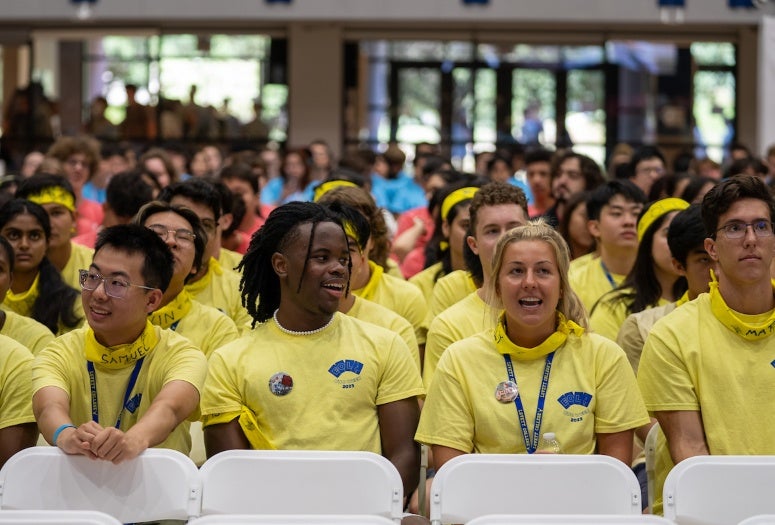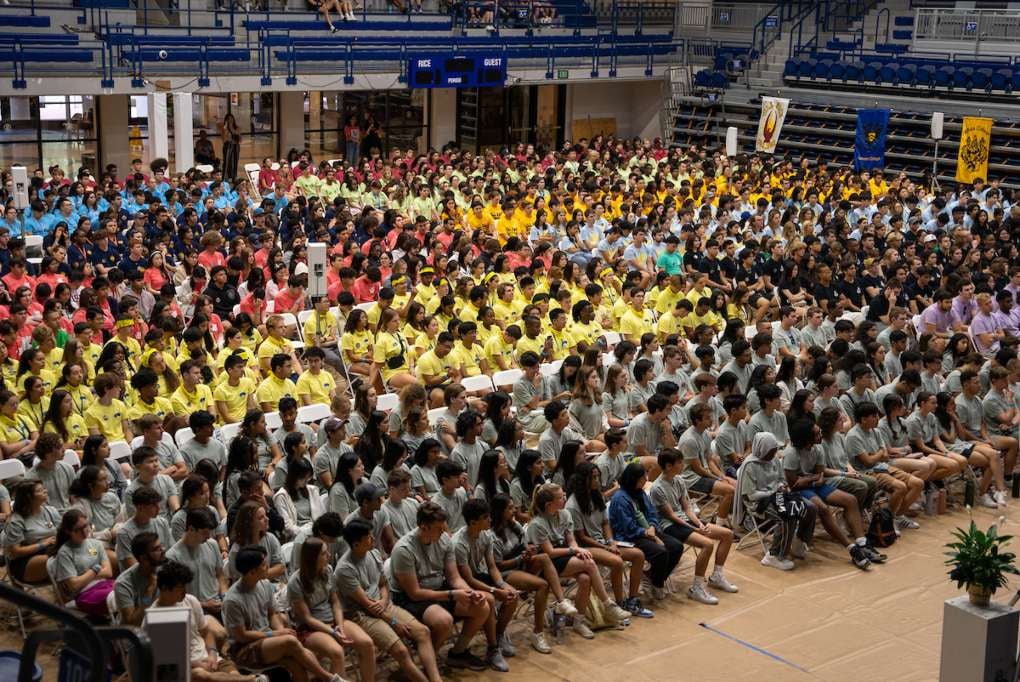
On the second morning of O-Week, Rice’s Class of 2027 gathered in Tudor Fieldhouse to receive advice from a three-person panel of professors regarding their secrets for success — both at Rice and beyond. The faculty delivered short, TED-style talks encouraging new students to stay open to the possibilities the university offers.
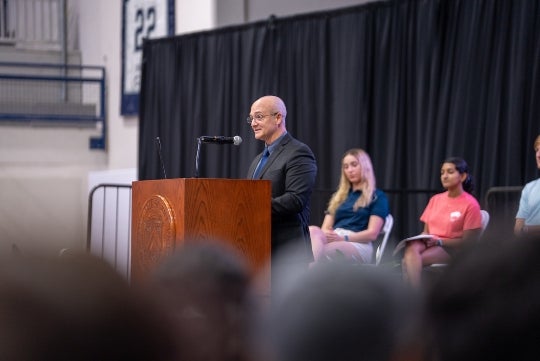
The address served as a precursor to an academic fair as students embark on their collegiate journeys. The event’s main priority is to acknowledge the next four years will herald change and the university is prepared to help students triumph along the way, Senior Associate Dean of Undergraduates Brian Gibson said during the welcome.
“While each of you will ultimately declare a major and delve deeply into that area of study, as faculty our goals for you are much bigger than that,” he said. “Your time with us is designed to help you develop strong communication and critical thinking skills, so you are able to engage with and solve problems across a range of life circumstances, including but also beyond your occupation.”
“Learning how to collaborate with others, how to work in diverse teams, and develop an appreciation for global issues — these are examples of what we hope you will gain from your time with us. We aim to help you build a foundation of knowledge and skills for lifelong learning.”
He concluded by telling the audience of 1,140 incoming students that they will not regret investing their time at Rice and will benefit in many ways.
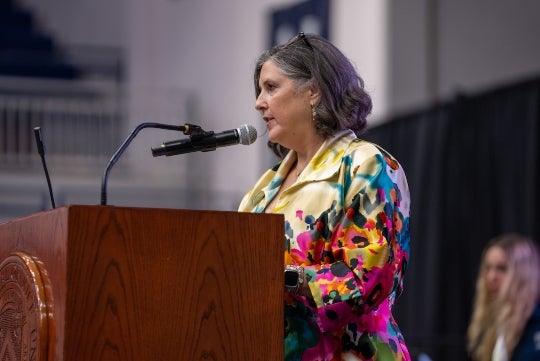
The first guest speaker was Sandra Parsons, associate teaching professor in psychological sciences, who was met with wild cheers from the audience.
Parsons assembled her list of suggestions from a deeply personal source.
“I’m talking today about lessons from the science of happiness that comes from not only my class, Positive Psychology, and our department, but also from my 30-plus years of being a professor, a mom, a resident associate and all of my life experiences.”
Her four-point list for students included facing fears, seeking out happiness, asking for help and being mindful of choices. She also encouraged the pursuit of flourishing during students’ time at Rice.
“Flourishing is finding the fulfillment in our lives, accomplishing meaningful and worthwhile tasks and connecting with others on a deeper level. In essence, it means living the good life,” she said.
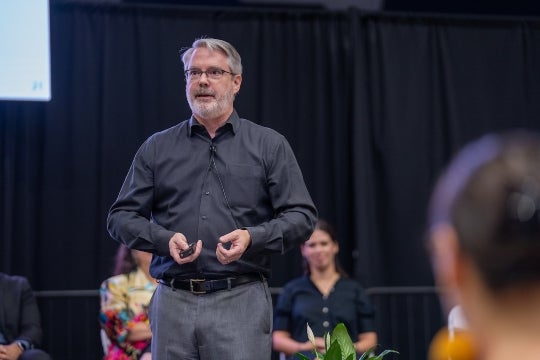
Alexander Butler, the Jesse H. Jones Professor of Finance, was the next presenter, who spoke of the elite university’s role in research. Using one of his studies on discrimination in the auto loan market, he underscored that the main function of a research university like Rice is to create new knowledge, as it is the currency that creates academic reputations.
“Some of the challenges that we face in general is the question of if the work is relevant and if it is useful,” he said, explaining how Rice’s researchers aim to improve the world. “We have to ask, ‘Do we learn from the research what we do not already know, and can we separate correlation from causation?’ Absolutely, we can at Rice.”
Butler also offered two additional no-nonsense tidbits for incoming students.
“First, go to class. It is the best bang for your buck in terms of your time. Second, text your folks. They’re probably worried about you,” he said.
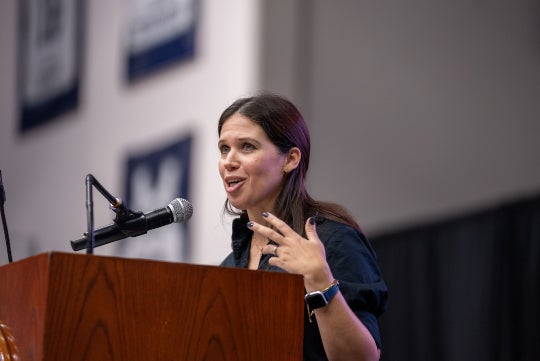
Finishing up the presentations was Margarita Castromán Soto, assistant professor of English. She shared her own journey through college and into teaching, and what she learned along the way by remaining curious.
“What I ended up learning from the four years of my own undergraduate experience is that when I was trying to figure out the answers to questions that were plaguing me … it was really an effort to make sense of the world I was living in,” she said. “For me, the most provocative, poignant and moving way that I found out those answers was by reading the stories of people.”
She said her purpose for entering into the humanities – and why she hopes the current incoming flock of Owls will consider doing the same – is because it helps people to make sense of the world, to imagine and to build new futures.
Castromán Soto wrapped up the morning’s address on an inspiring high note.
“My biggest hope of all is that, no matter what discipline you are in, that you keep people at the center of your work and that you remember to look for, listen to and learn from their stories,” she said.

